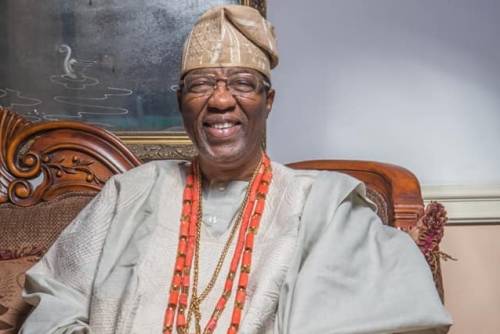
The British High Commissioner to Nigeria Paul Arkwright says great steps have been taken towards genuine democracy in Nigeria since the return of civilian rule in 1999. He had a chat with CNBC Africa’s Esther Awoniyi and discussed the advantage of the Commonwealth to member-nations and more.
I think since 1999, and the return of civilian rule and genuine democracy in Nigeria, I think great steps have been made. I think 2015 was a watershed in many ways so the first time that an incumbent volunteered to give up power and accept that he had lost and welcomed graciously his successor so I think that was a really important step and indeed something which sent a very strong signal within Africa and not just Nigeria, so I think that good. On the other hand I think democracy is a fragile plant and we’re coming up to elections here obviously in February next year, 2019. Before that of course we’ve got Ekiti and Osun governorship elections and I think what interests us is not so much the political campaign or which party should be in or which presidential candidate is better than any other, I don’t have a view on that. What I have a view on is the independence of the process, ensuring that there is a free and fair credible and peaceful election and to that end the UK is indeed providing support.
We’re providing support to the Electoral Commission to INEC, we’re doing some training of electoral observers, we funded the situation room and the NGOs who are so important to society; so important in elections, we’re encouraging women and youth groups to get engaged in politics and to vote. All of this through the department for International Development Programs which is about deepening democracy in Nigeria. So very strong UK support for the process and to make sure that the process works and to help really get those roots of democracy firmly embedded in Nigerian soil but not engaging obviously in the party political campaigning and so on and there is a clear distinction there I’m sure you understand.
Absolutely. Lets talk about democracy as a whole on the continent. When we saw that Arab spring, the uprising it appeared that there was some sort of shift specially among citizens, we call it the office of the citizens now here in Nigeria. It would appear that there is this growing awareness now and willingness to be a part of politics now among the youth and women and we’re even seeing that here in Nigeria, but do you think Africa is on that path of toward a place where elections are coming and people are excited and not afraid to go to the poles and vote; exercise their rights to vote?
I do think the trend is positive actually if you look at recent elections in this region; in West Africa only recently Sierra Leone; The Gambia of course was a very good example of where somebody who was an ineffective dictator was removed through political pressure from ECOWAS, President Buhari obviously played a very important role in that, elections in Ghana which have been peaceful. So I think we’re seeing that trend and I think in Nigeria I certainly hope that that trend will continue, it is important.
Violence is a part of the electoral history is you like of Nigeria. It’s really important that people are allowed to express their opinion freely without violence. So again that’s one of the things that we’re doing is talking to the police, talking to the military about how they are going to approach the elections, making sure that they provide adequate protection but they are not involved too much. It’s not for us to dictate that but it is for us to say it’s really important that we have peaceful elections and that’s the message that I’ve been getting across consistently in all of the elections since I’ve been here; 2 and a half years. the governorship elections, we send observers to every significant election, international British observers, EU observers monitoring keeping an eye on what happening and if we see problems, we speak up and we say this is an issue, there is a problem here and we report it and we talk to INEC about it and INEC can then improve things and I think generally things have improved as we go along but violence is a threat and it’s something that needs to be very carefully looked at.
Still on that, still on the election, we’re going into one very shortly; 2019, and I suppose by the second half of the year campaigning will start in earnest and we’re going to go into a period where investors will also become nervous. For British investors, is that something that will be a concern too as we go into the election cycle; you know, the fear of the unknown as it were?
Yes well i will distinguish. I mean first of all say campaigning has already started, you say it is going to start at the end of the year. One could argue that there’s a lot of it going on already.
Oh okay, I was talking about you walking on the street and it’s just all in your face.
Yeah, okay. So British investors are savvy, okay, they know, they look at the markets in particular, portfolio investors at the moment are very excited about Nigeria, they have come in obviously they are buying bonds, they are buying debt in a big way. I’m trying to encourage FDI as well as portfolio investments because FDI is really where you’re actually helping manufacturers, you’re helping their agriculture business and so on. And I think people are weary of the elections but I think those who; certainly those who are here already we have a lot of long established British companies who’ve been here for decades. your BAs, your Unilevers, your Shells, your Diageos, your PZ Cussons, etc. all of those I’m sure are in it for the long term. We are encouraging new investors to come in and have a look it and I think you know; why not invest in Nigeria during election period? You need to be careful, you need to make sure you have good local reliable partners going into it, you need to talk to our department for international trade we’ve got an excellent team here in Lagos to actually help them to understand the market place but this is a booming market in many ways and it’s going to get better so unless you’re in now; unless you’re in early, you might lose out later on. There will be turbulence, there will be ups and downs but it’s actually part of the process and I think if you stick with Nigeria, you will succeed in Nigeria.
Okay. Let’s talk about the issue of illicit funds flows. I know that the UK has been accused on many occasions of making it easy or being a lot more accommodative to illegal funds coming into the UK. Now that there is the Unexplained Wealth Order, I believe it’s that someone who owns assets worth £50,000 is expected to declare their source of income. How this is progressing so far?
So first of all I would say the government is doing things about illicit cash flows coming into the UK. You talked about property; we’ve established something called the Register of Beneficial Ownership which actually goes behind the shell companies in the offshore tax havens and actually lists the names of people who genuinely are the people behind buying the properties not just the shell companies but the people behind the shell companies. There is an open government partnership which Nigeria is very much a part of which is helping to tackle corruption within government which means transparency and accountability.
Those are British initiatives which came out of the anti-corruption summit which President Buhari attended in May 2016. So I would challenge that we are not doing anything about it, I mean its problem, it’s a global problem I’m not denying that it’s a problem but the UK government has done a lot to help to tackle that. Working I have to say very closely with the Nigerian authorities .On unexplained wealth orders; it’s a new thing you’re right, It is about declaring assets. If anybody cannot demonstrate that they have bought an asset in the UK through legitimately earned funds/means then they need to explain themselves.
[ad unit=2]






